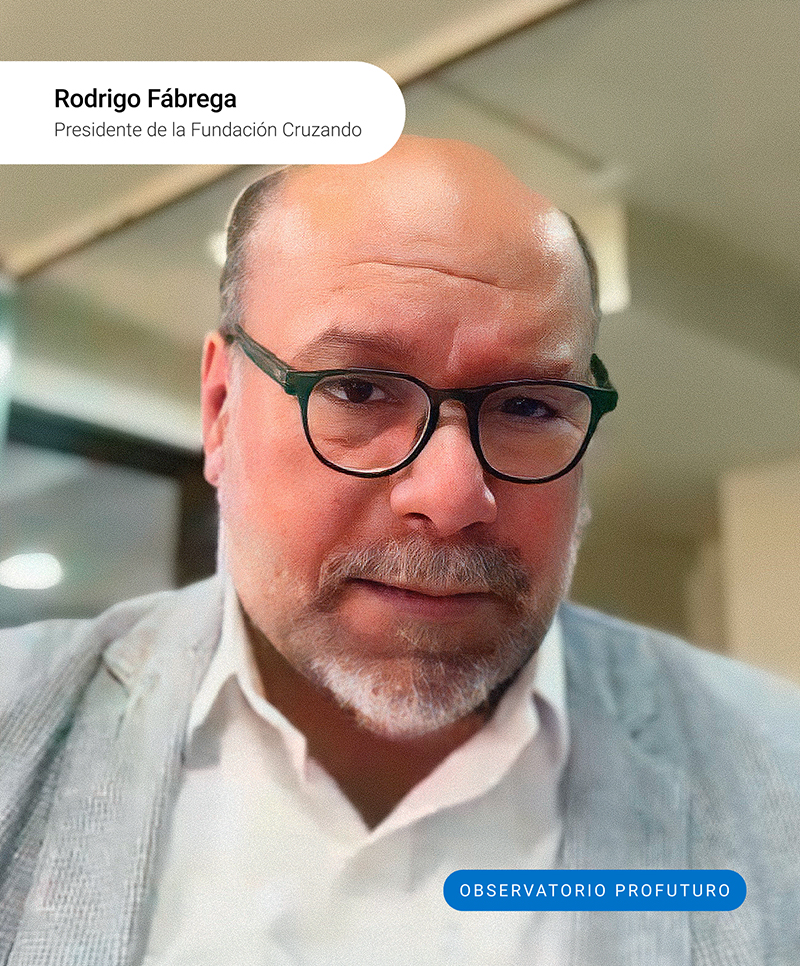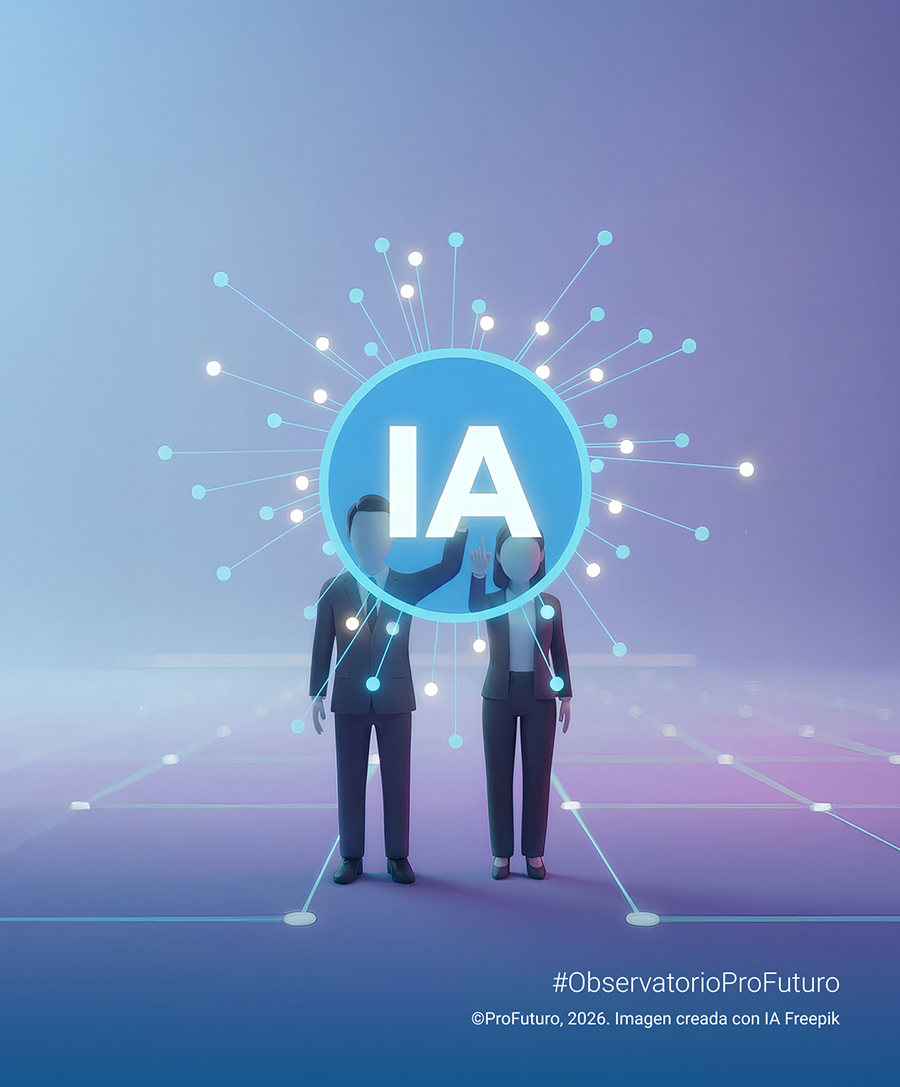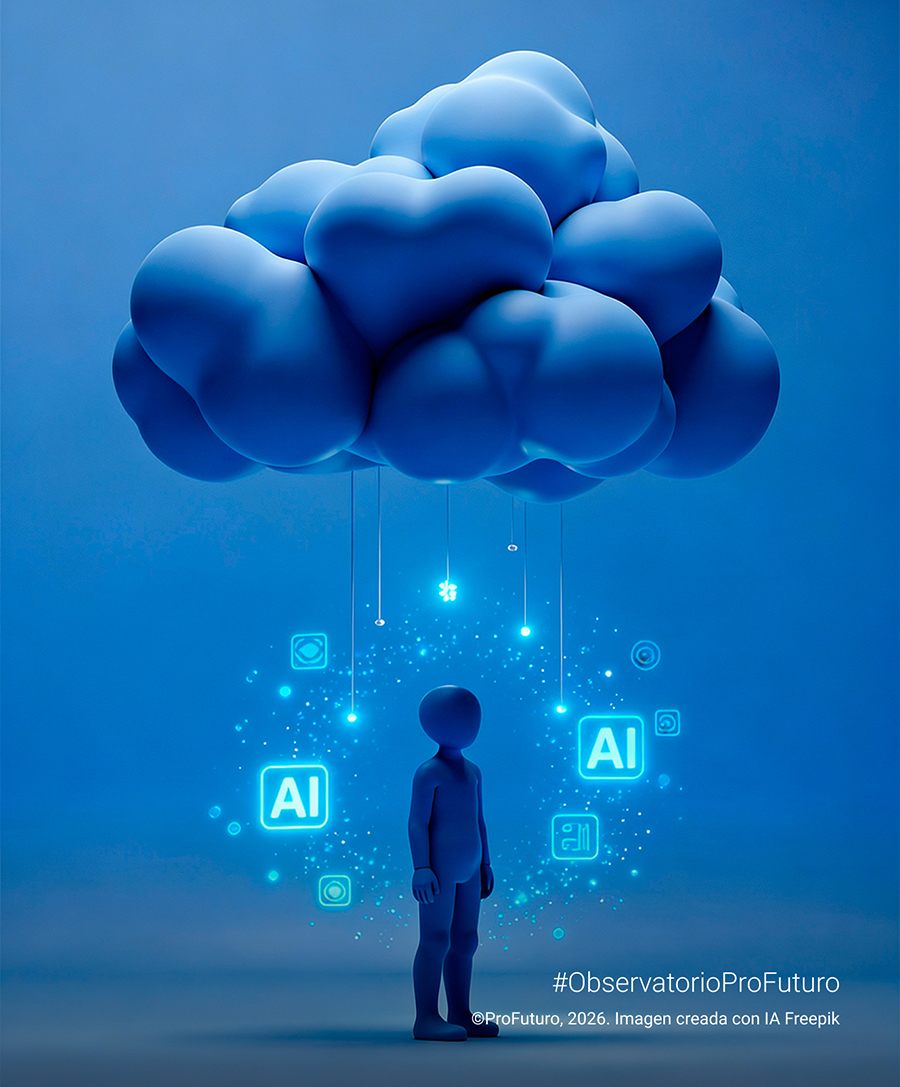When artificial intelligence entered our lives—and with it, our classrooms—questions and concerns multiplied: Will it replace teachers? Will it eliminate creativity? Will it standardise learning?
But what if the real potential of this technology lies not in replacing tasks, but in stimulating thought and creativity? This is the premise driving Rodrigo Fábrega, a researcher and expert in education and technology, and the focus of his conversation with the Observatory. To understand how to turn AI into a tool that serves creativity, Fábrega offers a powerful metaphor: think of AI like modelling clay. Not as a rigid system of correct answers, but as a flexible material in the hands of learners. Something children can shape with their ideas, interests, and questions.
The conversation centres around a key idea: it’s not about adapting to technology, but educating to master it with discernment and creativity. And to face this change, we must “act fast, think slow, and dare to create from scratch”. It’s not a recipe—it’s an invitation to rethink everything.
The dilemmas aren’t avoided either. Do we want students to be obedient users or active thinkers? Will we let AI decide for them, or teach them how to teach it?
Fábrega is clear: educating with AI is not about training to answer, but making space to ask. That’s the real plot twist: reclaiming the question, the mistake, curiosity. Returning to a school where learning means thinking, not just repeating.
Of course, we also talk about teachers: how alone they sometimes feel, the mismatch between the university that trained them and the classroom where they now teach… But also the immense potential they hold when AI serves them—not replaces them.
A conversation without definitive answers, but full of ideas to rethink education in the age of artificial intelligence.
Press play. It’s worth it.






